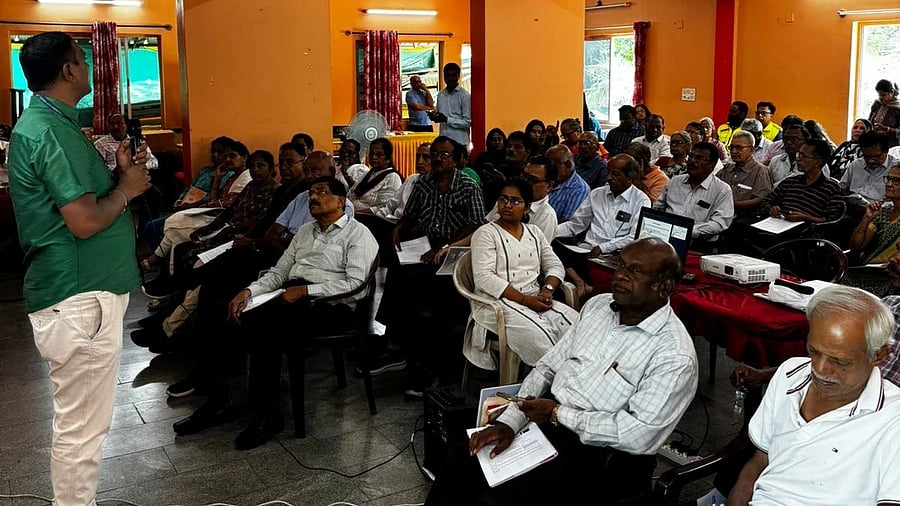
Credit: Special Arrangement
Experts in eldercare say the surge in crimes against Bengaluru’s senior citizens highlights the need for routine cyber safety training, and stronger social connections.
Crimes against the elderly in the city rose by 41.7 per cent between 2022 and 2023, according to the recently released National Crime Records Bureau data. Bengaluru recorded 649 cases; a bulk of them related to forgery, fraud, and cheating. Other offences included attempt to murder, assault on women, theft, extortion, trespass, and isolated instances of kidnapping and abduction.
From April 2024 to March 2025, the Elders Helpline 1090, jointly run by Bengaluru City Police and Nightingales Medical Trust (NMT), has fielded 813 calls about harassment by families, outsiders, and service providers. In the same period, 16 seniors sought cyber safety assistance. Complaints ranged from fake investment schemes and impersonation to siphoning of money from bank accounts.
Since April 2025, nine seniors have reported similar concerns. Among them was an 81-year-old who lost money to fraudsters, and two women who endured harassment from unknown callers. To counter this, the police and NMT have conducted 38 digital literacy and cyber safety sessions in the past year, drawing 45-100 participants each, mostly men. Trainers use videos to explain OTP fraud, fake job offers, and stock market traps.
Silver Talkies, a social enterprise for empowering seniors, also runs workshops on app privacy settings, secure digital payments, and how to use DigiLocker. “Our next session will focus on artificial intelligence — from using ChatGPT to identifying AI-generated videos,” says founder Nidhi Chawla.
Assisted living
NMT co-founder Premkumar Raja says seniors should avoid living alone and live in communities instead. Gated senior societies reflect this shift, though they charge a premium when compared to old-age homes. At one such Indiranagar facility run by Lifebridge Senior Care controlled entry, 24/7 surveillance, and night patrols are part of security measures. If needed, staff can accompany anxious residents to police stations and help liaise with lawyers, says Reema Nadig, director and group COO. Athulya Seniorcare, with centres in Whitefield and Kasavanahalli, uses digital visitor management, and trains staff to detect early signs of distress. Their workshops focus on practical tips such as recognising fraudulent calls and disengaging from suspicious strangers, says founder and CEO G Srinivasan.
Everyday precautions
Many seniors adopt their own safeguards. Vrinda Parigi, 74, from Basavanagudi, keeps her gate locked, CCTV on, and jewellery in lockers. Gayathri Sathyanarayana, 70, who lives in Banashankari, has grills and alarms installed, while her husband uses a separate phone for financial transactions.
Raja advises elders to verify backgrounds of domestic workers’, avoid displaying wealth, and strengthen neighbourhood bonds. Nadig and Srinivasan recommend video door phones, motion-sensor lights, and staying updated on new forms of scams. Prof Indira Jai Prakash, a gerontologist, says that Indian culture has not prepared people for independent ageing. Her suggestions: smartphones that are affordable and senior-friendly, daycare centres for the elderly, and regular welfare checks, like in the West.
Need help? Contact
*1090 - Elders Helpline run by NMT and Bangalore city police.
*14567 - National Senior Citizen Helpline
*To request a cyber awareness workshop by NMT and Bangalore city police, contact 92437 37214.